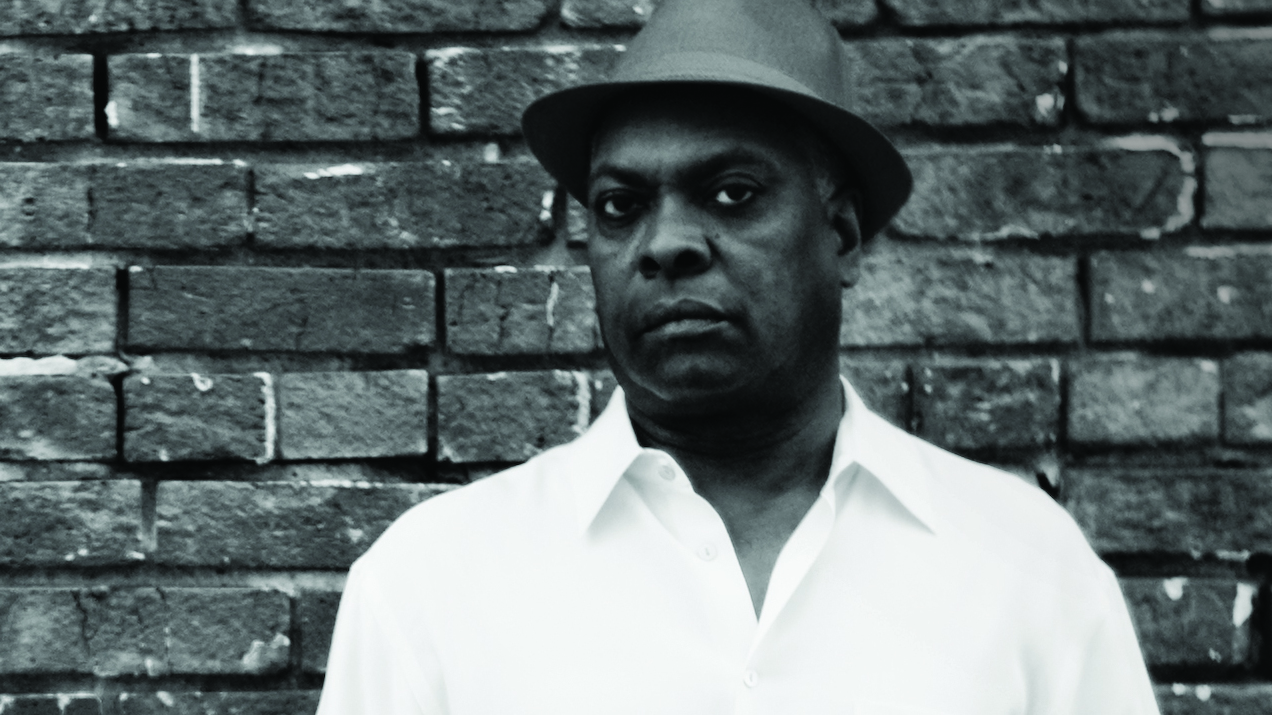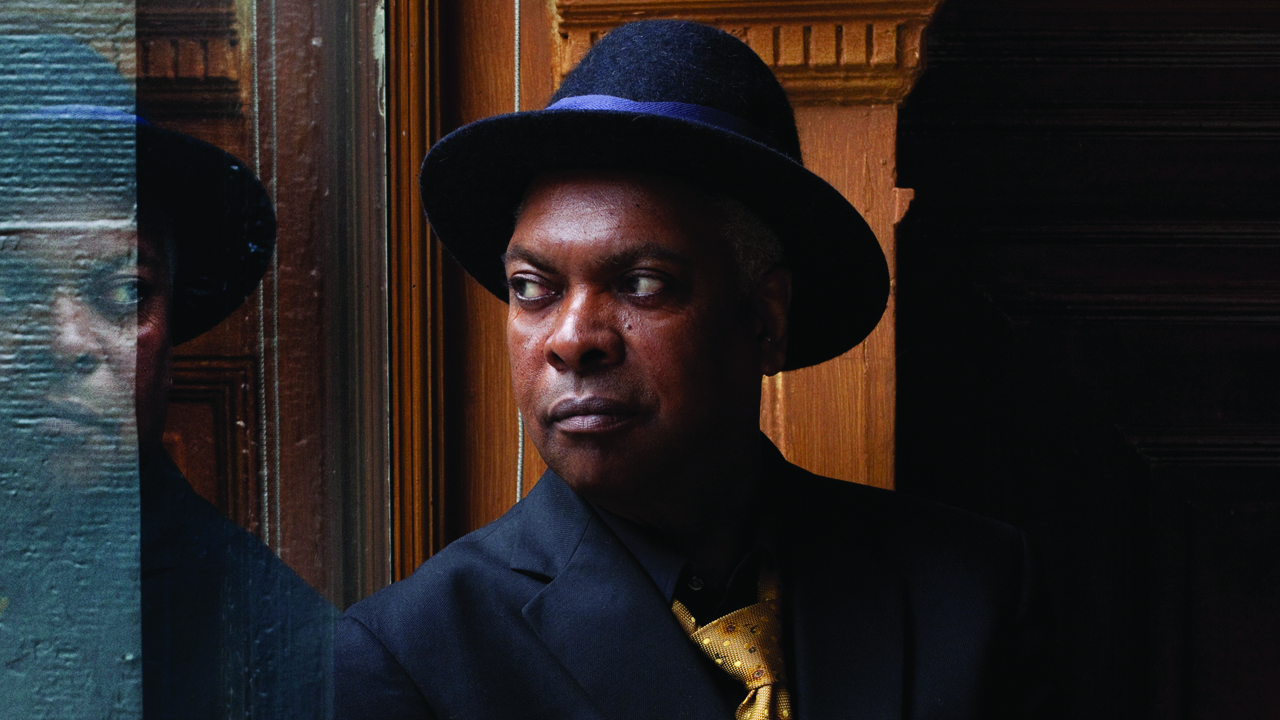Booker T Jones: The Hitman
As leader of Stax house band The MGs, Booker T Jones has played on more seminal sides than you’ve had hot dinners. Now, Mr T looks back on 10 gems from his catalogue.

Select the newsletters you’d like to receive. Then, add your email to sign up.
You are now subscribed
Your newsletter sign-up was successful
Want to add more newsletters?

Every Friday
Louder
Louder’s weekly newsletter is jam-packed with the team’s personal highlights from the last seven days, including features, breaking news, reviews and tons of juicy exclusives from the world of alternative music.

Every Friday
Classic Rock
The Classic Rock newsletter is an essential read for the discerning rock fan. Every week we bring you the news, reviews and the very best features and interviews from our extensive archive. Written by rock fans for rock fans.

Every Friday
Metal Hammer
For the last four decades Metal Hammer has been the world’s greatest metal magazine. Created by metalheads for metalheads, ‘Hammer takes you behind the scenes, closer to the action, and nearer to the bands that you love the most.

Every Friday
Prog
The Prog newsletter brings you the very best of Prog Magazine and our website, every Friday. We'll deliver you the very latest news from the Prog universe, informative features and archive material from Prog’s impressive vault.
It happens every time Booker T Jones leaves the house. He’ll be going about his business, keeping his head down. Then he’ll hear it. In an elevator. On an in-store radio. From the stereo of a passing car. “I still hear a lot of the songs I played on,” says Jones, in a speaking voice so mellow it could sedate Ginger Baker. “In grocery stores. In restaurants. And I still get a little kick from it.”
Statistically, it’s no surprise that Jones is constantly reminded of his greatest hits. Other great session men like Nile Rodgers and Steve Lukather might be snapping at his heels, but surely none can claim the solid-gold hot-streak of the 71-year-old keys man. Between 1962 and 1970, Jones’ role as leader of Stax house band The MGs meant he played on virtually every platter that left the Memphis label. “We were the heart of the place,” he recalls of the original line-up completed by Steve Cropper (guitar), Al Jackson Jr (drums) and Lewie Steinberg (bass). “When I left the band in 1970, and moved to California, that created a kind of emotional chasm with Steve that I’ll never be able to make up for. We still talk, we still work together, sometimes we play together. But that was an unforgivable act.”
Not all the MGs made it: Jackson was shot dead in 1975, and we lost mid-period bassist Donald ‘Duck’ Dunn four years back. Thankfully, Jones isn’t just surviving, but flourishing, rejoining Stax for 2013’s Sound The Alarm album, and gearing up to play in London in July. “I’m bringing a five-piece,” he says, as we prepare to discuss his 10 greatest moments. “We do Stax, we do songs that influenced me, we do my solo songs, we do a lot of MGs songs. It’s the story of my life, basically…”

Booker T & The MGs
Green Onions (1962)
“Green Onions started as a little chord progression in theory class at high school. The third chord in a progression was always a major, but I fooled around and made it a minor, like in Green Onions. I didn’t see myself as a musical genius at all: I was just trying to figure out the stuff I could hear in my head. When the MGs recorded it, that was a special group of energies. [Original bassist] Lewie Steinberg, he’d played ballads in the clubs. Steve Cropper came from a group of rebellious white kids that were listening to The 5 Royales. Al Jackson Jr was into all the great drummers. It just clicked. Right place, right time. I didn’t know how famous Green Onions was until I got over there to where you are. Those were our first big crowds, in London. I still get royalty cheques for it. That’s the one thing that they can’t trick me out of!”
Albert King
Sign up below to get the latest from Classic Rock, plus exclusive special offers, direct to your inbox!
Born Under A Bad Sign (1967)
“The Stax record company was hastily thrown together, and many of the sessions were hastily thrown together, too. This was one of them. Albert King was driving down from St Louis, but they had no material for him, so the assignment was given to me and William Bell to write a song. So the night before, we went into my den and wrote Born Under A Bad Sign. So there we were, sleepy, the next morning. I knew Albert was a great blues guy, but I didn’t know just how great until he started playing. I mean, it was like fire and brimstone, when he hit those notes. That’s why I started playing the piano so fiercely afterwards, because of the way Albert attacked the guitar.
“People say Albert King could be ferocious. I hear that all the time. But I must tell you, I never worked with a sweeter man. I hear all these stories, and I just didn’t meet that guy. Before he died, he was like, ‘Booker, why don’t you call me? I haven’t heard from you.’ He was so sweet. He’d send me little gifts. But obviously he could be cantankerous – and probably with good reason, if you ask me.”
Otis Redding
Try A Little Tenderness (1966)
“What’s the best Otis Redding song I ever played on? Hah – the hardest part about doing interviews is a question like that. Try A Little Tenderness was great to record. Otis seemed possessed. And the way that Duck played with such abandon; he loved Otis so much, and it shows in his playing. But that song was such a release for all of us. The thing that got me through that session was focus. You could get caught up in the music and carried away, but if you lost your place, then you’d mess up everybody else. You didn’t want to be the one that made the mistake and caused the whole thing to stop. So you needed focus, but you also to balance that with enjoying the moment. That session was a special place in time and history, y’know?”
Eddie Floyd
Knock On Wood (1968)
“Have the covers of Knock On Wood ever got close to the original? Nope! Amii Stewart had a good disco version, but the combination of Al Jackson Jr, Steve Cropper and Eddie Floyd: you can’t beat that. There was some magic on that session, from beginning to end. What was so special about Eddie? Well, I guess the fact he’d come from Detroit and been part of The Falcons. I mean, Mack Rice, Eddie Floyd and Wilson Pickett, all in the same group – come on! I still do Knock On Wood on stage, and I’m sorta becoming a DJ now, and those Stax originals are some of my favourite songs to play. I have a DJ rig here at the house that I’m beginning to get into. From the time I was a kid, I always wanted to be a DJ. I got my first turntable out of Sears. I was just fascinated with them. In my old age, I’m kinda reverting back to the things I wanted to do as a kid.”
Sam & Dave
Soul Man (1967)
“Sam & Dave were really Atlantic people. Jerry Wexler signed them and sorta loaned them to us. I got to know them on the Stax European Tour [1967], and it was unbelievable, the energy that came from those two guys, backstage, on stage, on the bus. I didn’t know about mental telepathy until I met them. To see two people dance and sing like that, and intuitively know what the other guy is gonna do. It was like a basketball team. I was the tambourine player on Soul Man. I don’t know how that came about. You can hear my tambourine on the final version. It’s the sorta low popping sound: I hit it with my knuckles. I was just concentrating on the rhythm and getting the beats right. I was up there on the drum riser with Al Jackson Jr for that song, and I could see Sam & Dave dancing in the vocal booth, so that was cool. Do I rate myself as a tambourine player? Well, standing next to Al Jackson Jr, I’m good. Steve Cropper called him a human drum machine, so all you had to do was watch him and play what you saw. But anywhere else… I don’t know!”
Booker T & The MGs
Hang ’Em High (1968)
“I got a little cassette demo in the mail with the melody. Basically, it was an Italian spaghetti western melody in one key, and I had the idea to move it progressively up in half-steps, to give it more urgency. But it’s a song of life and death, and that was there in the melody. That song was written out in LA by a guy [Dominic Frontiere] who was trying to imitate an Italian composer. And it came to Memphis, of all places, and got that southern soul rhythm under it, with Cropper and Dunn and Jackson. It’s just a special combination, that melody with that rhythmic feeling.”
Booker T & The MGs
Time Is Tight (1969)
“That was written for the end of the movie Uptight, when the protagonist, Tank, he knows he’s about to die. So he knows he’s gonna go through the transition from life to death. He’s standing on a bridge, he’s about to be killed. And that’s the melody you hear. The melody to Time Is Tight, to me, is transformative in a way. In that, it’s non-traditional, it moves into a world of its own. It’s not a 12-bar phrase, it’s a 14-bar phrase. Everything in Memphis was 12-bars when I grew up. I didn’t mind breaking the rules – once I knew them. And it still moves me, that melody. It gives me emotional space, it relaxes me, it fills me with hope. And the way Duck, Steve and Al play the rhythm, it’s just a pulsating thing. It’s like life itself. You don’t want it to stop. When we played that at the Creedence Clearwater show in Oakland [1970], Cropper steps out and plays that thing with such conviction that it becomes a song you’ll never forget.”
Neil Young
Are You Passionate? (2002)
“That was a sort of political statement right after 9⁄11. Neil was definitely a soul man. He had played with Rick James up in Canada, and there were no adjustments at all when we started to work together. Neil in the studio was pretty much like he is on stage: intense. He got me back into playing guitar. Guitar is what I started with. Before I went to Stax, y’know, I was a guitar player, but then I quit, because basically Cropper was there and I couldn’t really play guitar at Stax. I got fascinated with the Hammond and I had put the guitar down for years. But then, when I got with Neil, and he had the big sound and everything, I picked it back up again. I’ve been playing guitar since then, too. That’s why I did the Potato Hole album [2009].”
Booker T Jones
The Road From Memphis (2011)
“A love letter to Memphis? Yeah. The record company owner gave me the concept. He was saying, ‘You obviously came from Memphis, but you’ll never really leave Memphis.’ There were some special moments, like with Sharon Jones on Representing Memphis, and Lou Reed on The Bronx. He was a guy that liked me – although he didn’t really want to like me! That was such a nostalgic time in the studio. Y’know, the influence of Memphis on me was like a poet from Greece or a painter from Holland. It was such a privilege to be born there and a perfect place to grow up as a young musician, because there were opportunities. Obviously, there was Satellite Records within 10 minutes of my house. And then there was all the talent: if I’d been alone there, it would have been nothing. The soul of Memphis never died. Well, it died in the sense that so many people I worked with have passed away. But the spirit lives on. It just changed hands.”
Booker T Jones
Sound The Alarm (2013)
“I was very happy to be able to do something like that album. Y’know, neo-soul, in this age. It was really great to be back on the Stax label. That was a nice homecoming for me. Different people, but the same vibe. It was just like walking into the old company with new faces. I was very pleased with that album. Y’know, Mayer Hawthorne and Anthony Hamilton, singing the way we did in Memphis. And I loved working with Vintage Trouble on Your Love Is No Love. We all went into the studio and wrote the song together, then recorded just the way we did in the 60s,
on analogue tape, traditional and no-frills. Gary Clark Jr playing on Austin City Blues was another special moment: to look up and see the twinkle in his eye when he did something he thought I would like. The album title was an announcement that I’m back, y’know? I guess the perception is that I went away for a while – which I guess I did, because of the different problems with the music industry in the 80s and 90s. But I’m still here. I’m still the same kid that recorded Green Onions. I’m back!”
Booker T Jones plays London’s Brooklyn Bowl on July 7-8. See www.brooklynbowl.com or www.bookert.com for details.
Henry Yates has been a freelance journalist since 2002 and written about music for titles including The Guardian, The Telegraph, NME, Classic Rock, Guitarist, Total Guitar and Metal Hammer. He is the author of Walter Trout's official biography, Rescued From Reality, a music pundit on Times Radio and BBC TV, and an interviewer who has spoken to Brian May, Jimmy Page, Ozzy Osbourne, Ronnie Wood, Dave Grohl, Marilyn Manson, Kiefer Sutherland and many more.

